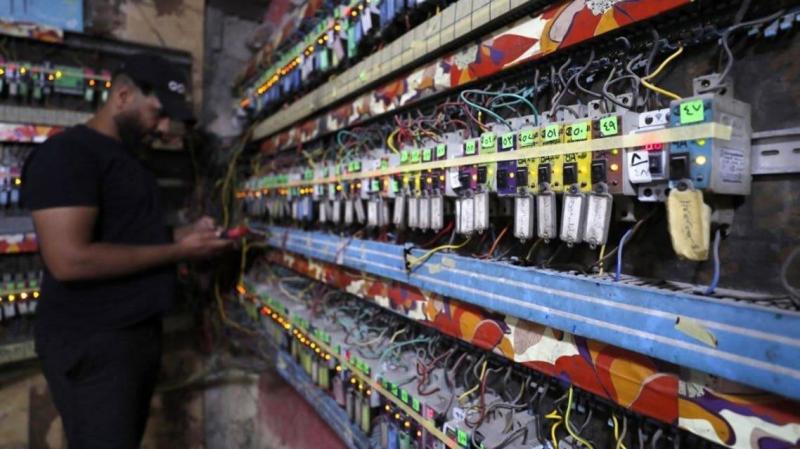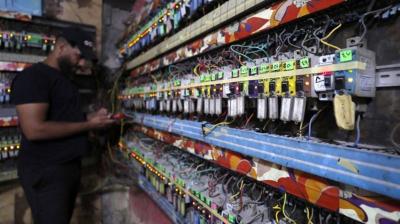Under the title "Scorching Summer in Iraq with No Electricity: Annual Anger Renewed," Al-Arabiya reported that Iraqis face a scorching summer every year, but this time with an unprecedented rise in temperatures reaching 52 degrees Celsius in some regions, particularly in the southern provinces. This situation has been accompanied by a blackout across the country due to power outages, halting air conditioning systems, fans, and water coolers. These developments have led to numerous protests in recent days, renewed yesterday in Nasiriyah in protest against the ongoing power outages, with several power stations targeted, prompting Prime Minister Mustafa Al-Kadhimi to assign the army to protect energy transmission lines.
Protests and demonstrations recur at the beginning of every summer, amid the ongoing deterioration of the electricity sector in this oil-rich country, despite billions spent annually on this sector.
In this context, Abu Taha, a resident of Diyala province, told Al-Arabiya.net that continuous power outages directly impact people's lives, especially as rising temperatures increase their suffering, compounded by insufficient water supplies in rivers due to reduced allocations from neighboring countries, particularly Turkey. The price of one amp of electricity in Iraq is about 25,000 dinars (20 dollars) monthly, which is not even enough to power lighting lamps. Abu Taha, who subscribed to three amps monthly, is forced to pay 60 dollars a month just for electricity.
Regarding electricity and politics, journalist Walid Al-Salhi noted that "the energy file in Iraq is used politically to fuel public protests every summer." He added that this issue is not new; it has been ongoing since the occupation of Iraq in 2003, where the ruling political class failed to build a good electricity system despite wasting billions of dollars in this vital sector. He also pointed out that some political entities domestically and regional countries, including Iran, do not want Iraq to become an electricity producer through their influence and parties.
Chronic corruption is another issue. Political analyst and researcher Haider Salman stated that electricity is one of the most chronic problems facing the country. He added that the Ministry of Energy previously announced that production currently stands at 18,000 megawatts but does not exceed 14,000 under the best conditions. He emphasized that the rise in temperature has also been a key reason for increasing public anger and organizing protests, along with the chronic corruption in this file. Additionally, he noted citizens' occasional refusal to install meters and pay dues to the state, as well as interventions from some countries in contracting major electricity companies at the expense of others.
One employee in the Ministry of Electricity who requested anonymity mentioned that corruption mafias within the ministry have begun operating in new ways by deliberately sabotaging energy transmission towers in some cities to form new committees for their reconstruction, costing millions of Iraqi dinars through contractors and influential figures in the field.
It is noteworthy that several Iraqi provinces have witnessed protests since last Tuesday demanding improvements in the electricity situation. Dozens of citizens gathered in front of the thermal power station in Nasiriyah protesting the electricity crisis, calling for the station’s production to be disconnected from the national grid. Meanwhile, the southern province of Basra granted a holiday to its employees due to rising temperatures.
Iraq requires more than 25,000 megawatt-hours of electricity to meet the needs of the population and institutions without interruption, while current production is less than 15,000, according to various estimates and studies.




